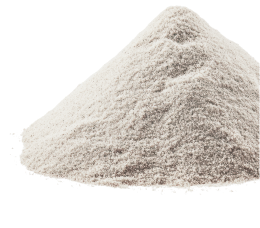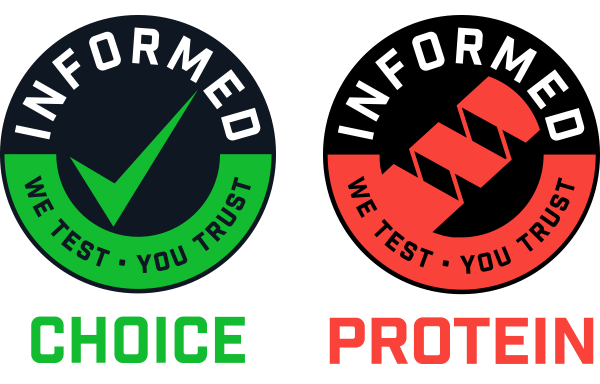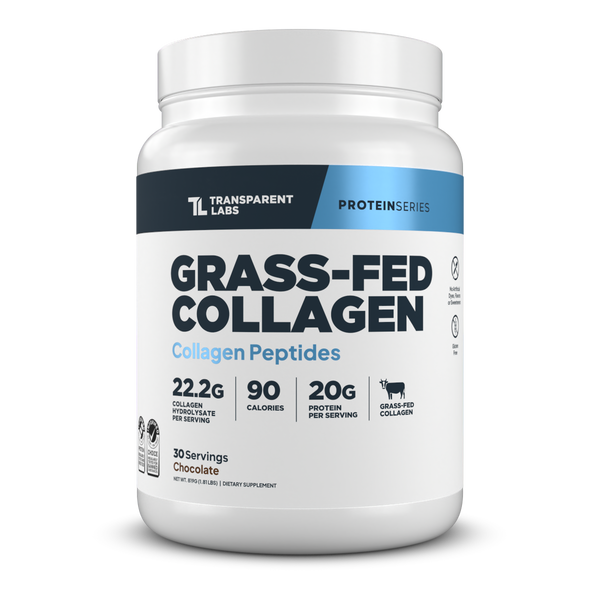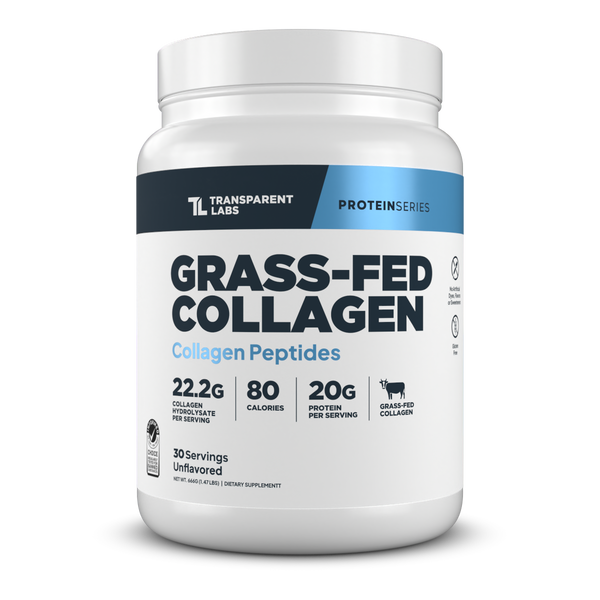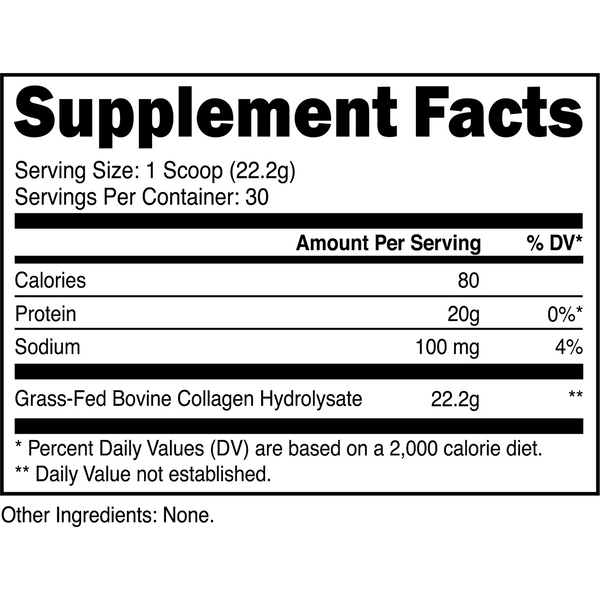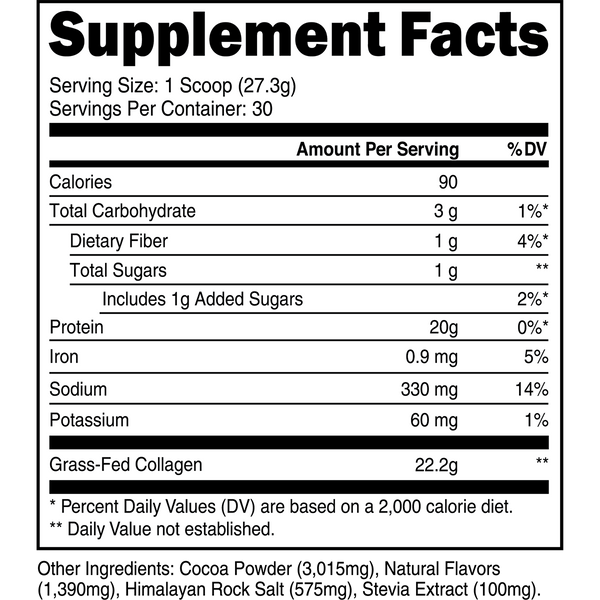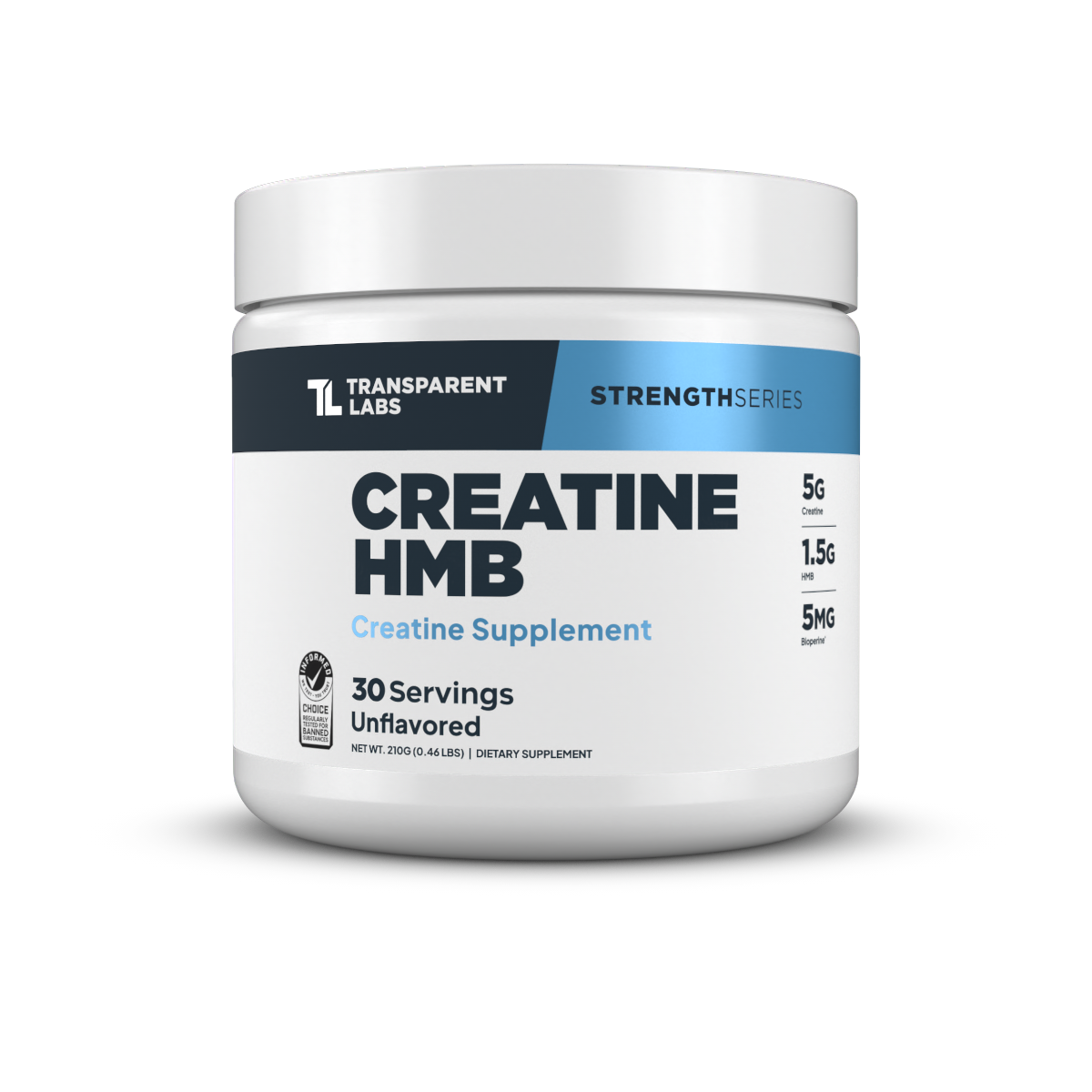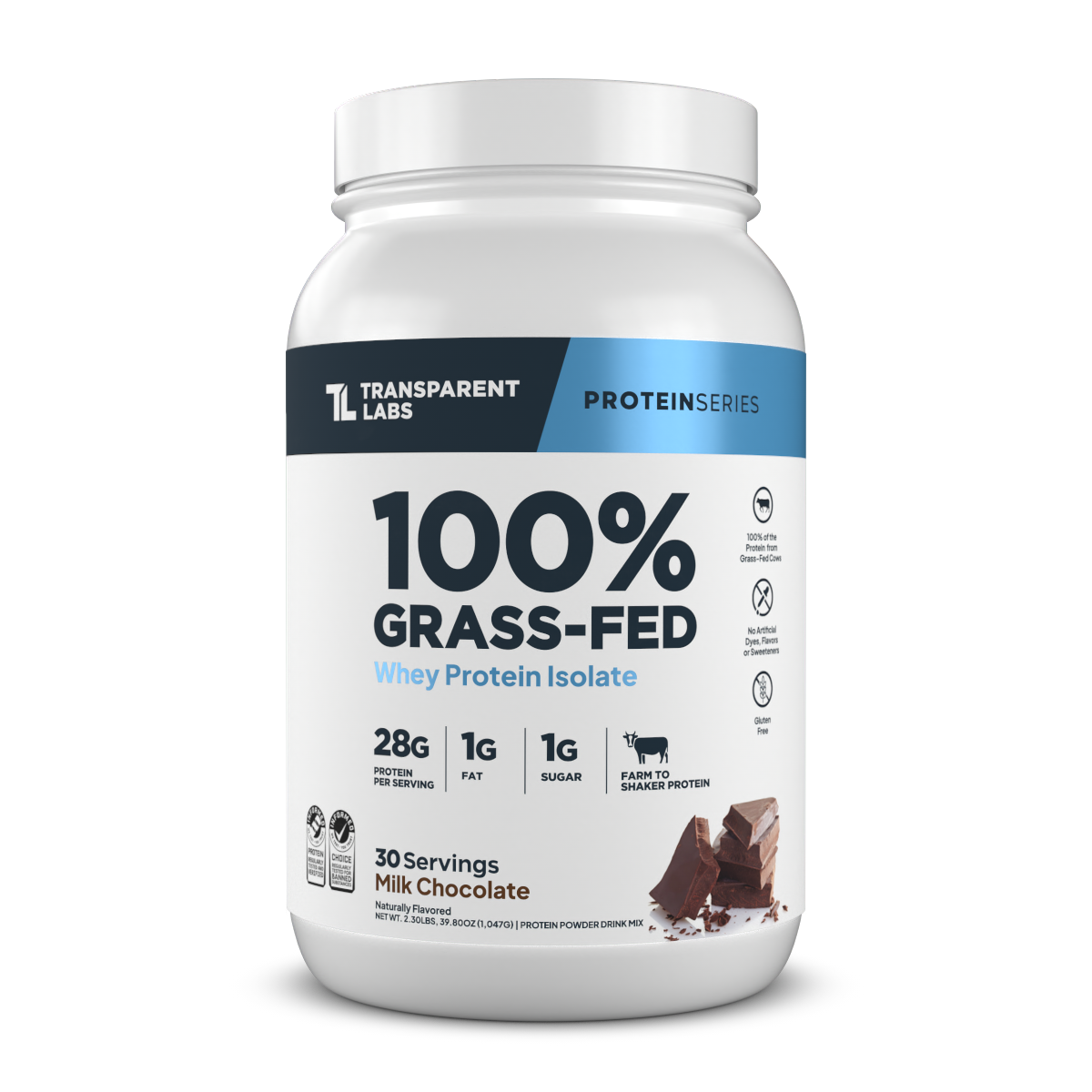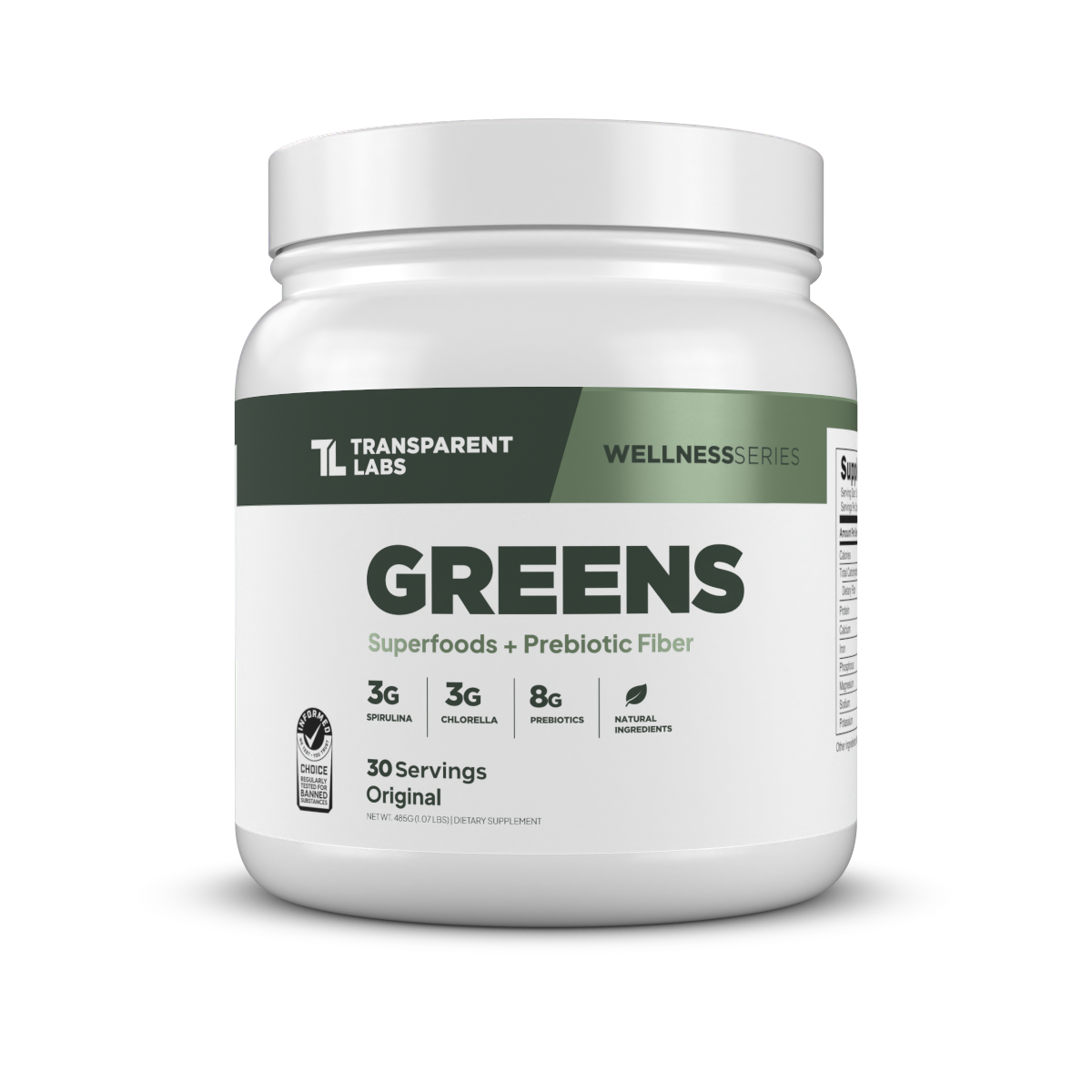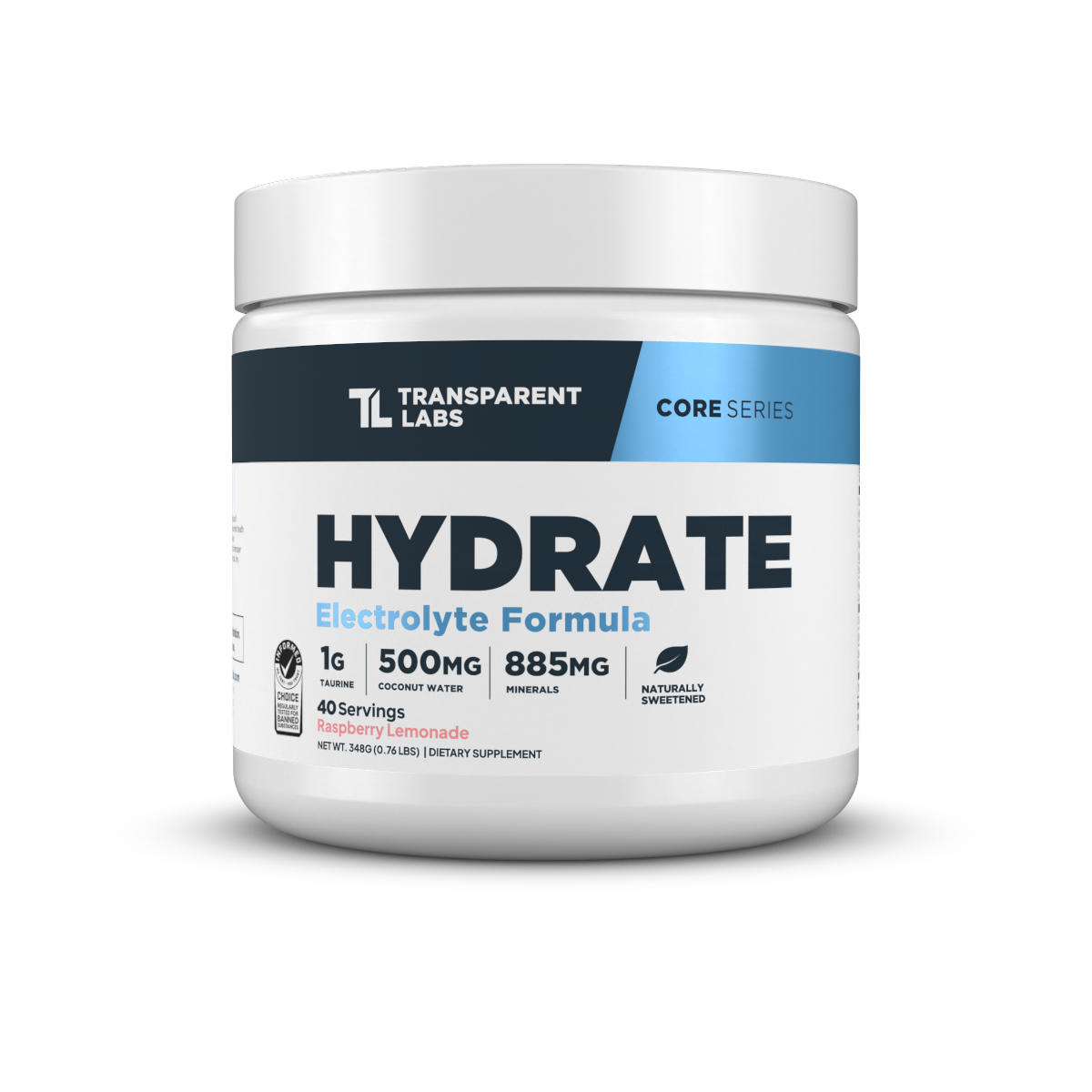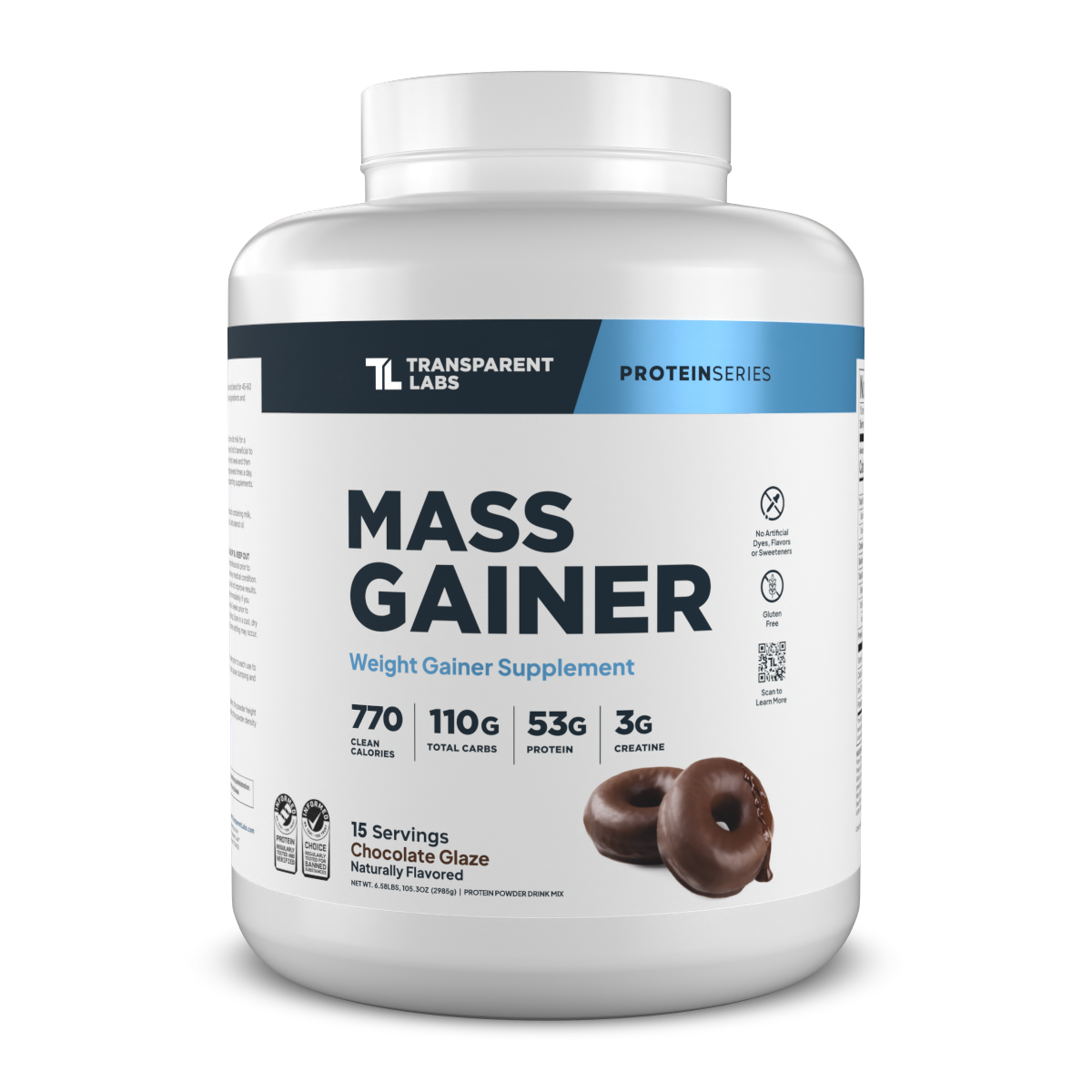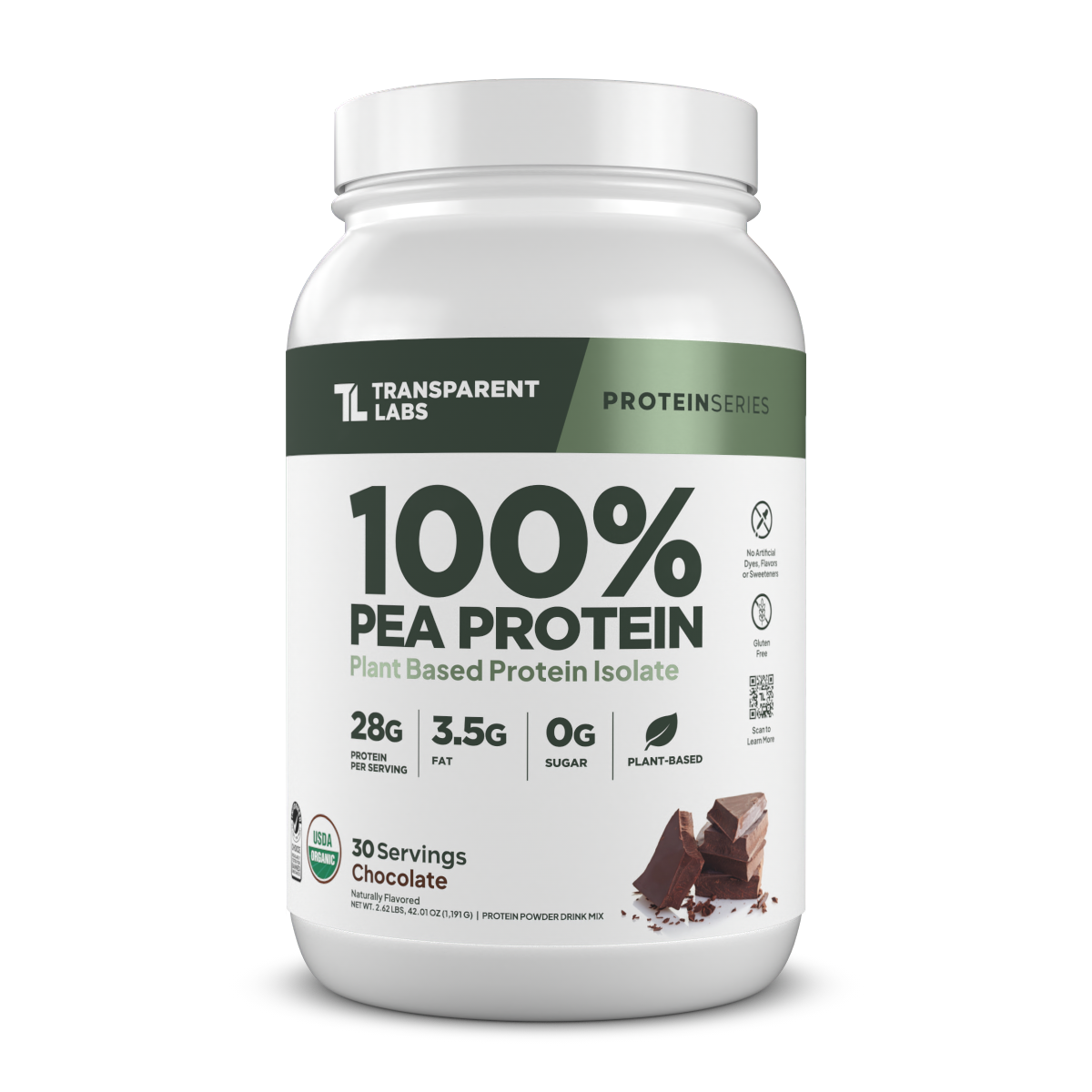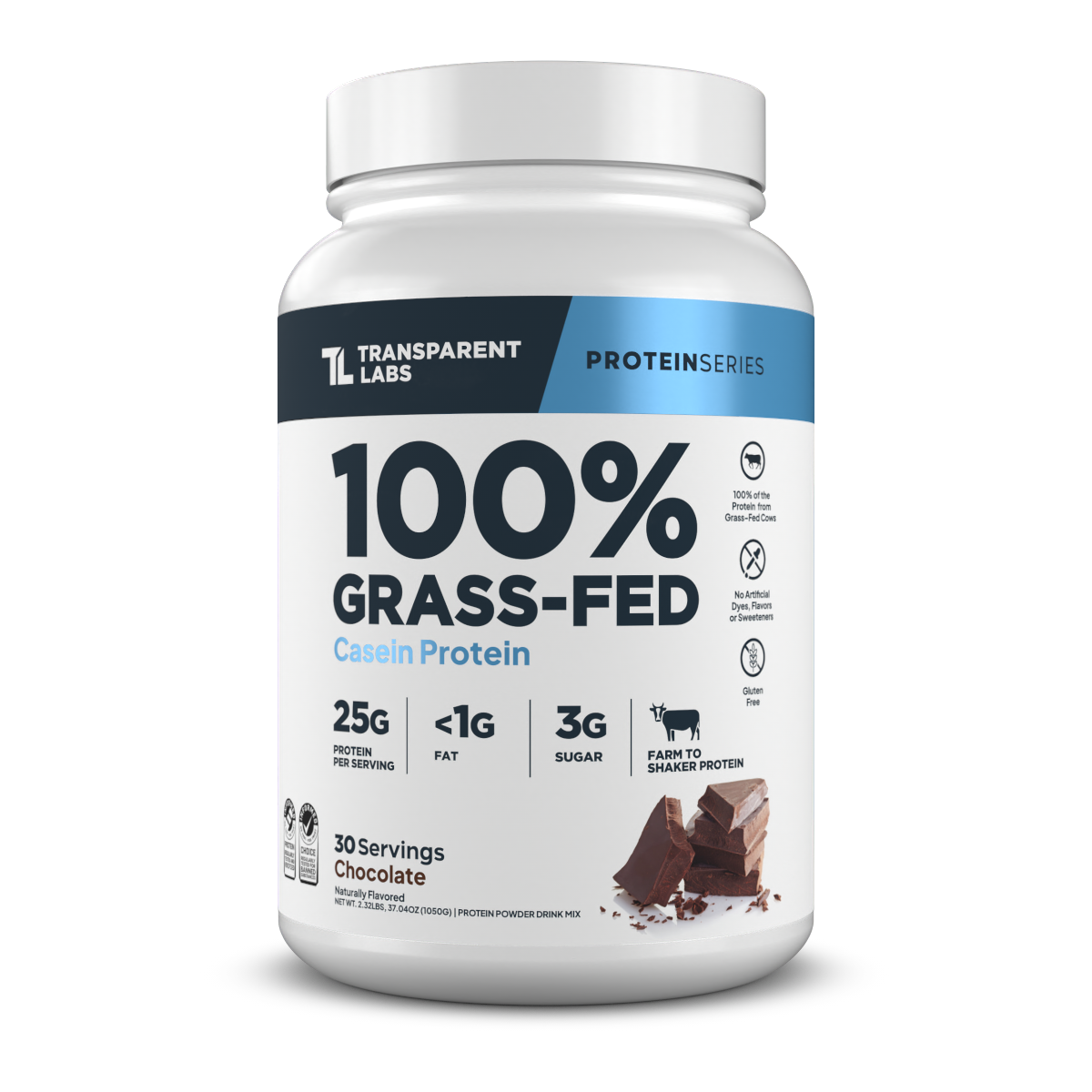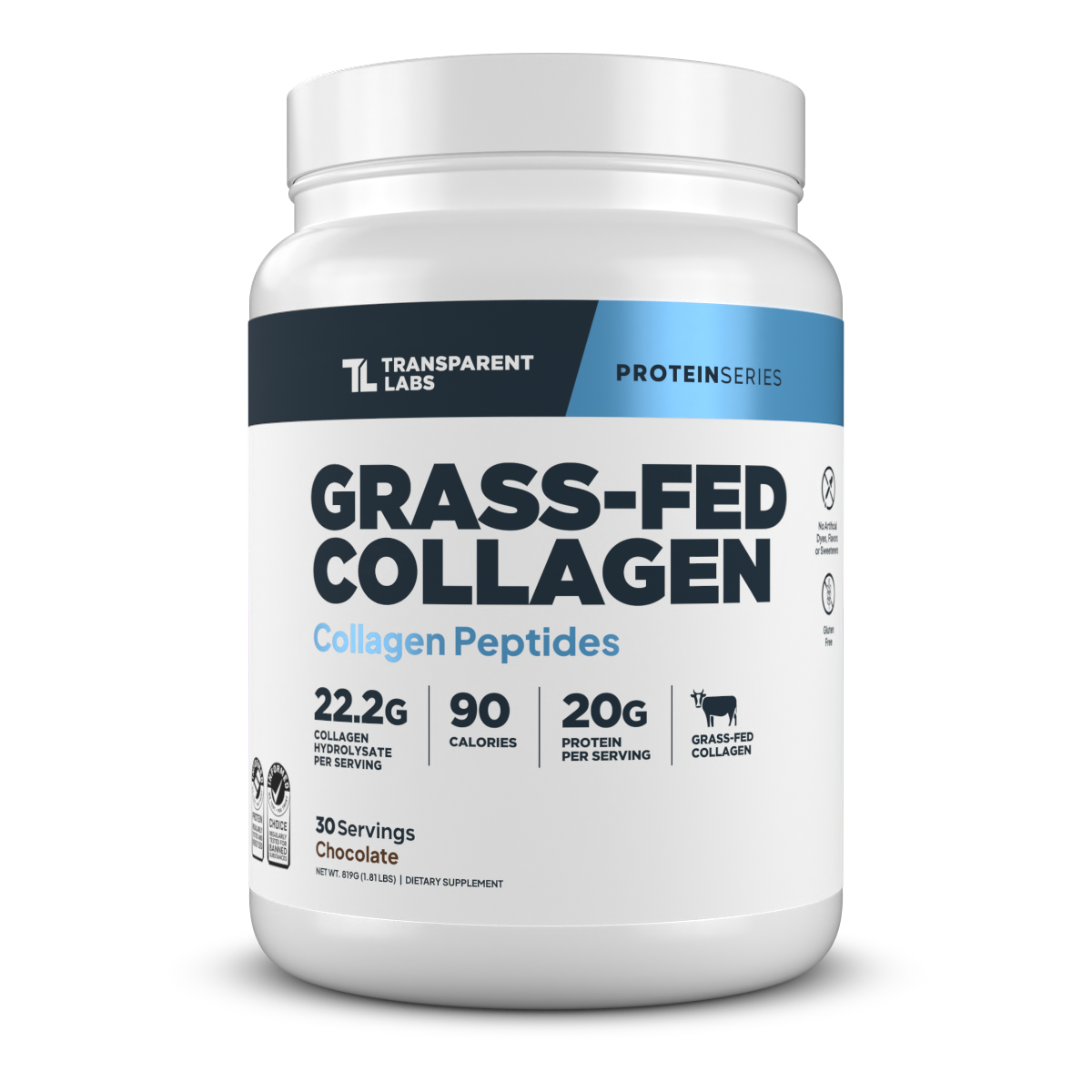
Third-Party Testing
We believe trust is earned through transparency. That’s why we provide full access to our third-party test results, so you can feel confident in what you’re taking. View all third-party tests.

Transparent Labs Grass-Fed Collagen Hydrolysate contains 22 grams of hydrolyzed bovine (hide) collagen peptides per serving, derived exclusively from grass-fed cows. Collagen is the most abundant protein in the human body and is essential for skin health, joint support, strong bones, youthful hair and nails, and much more.
As we age, our endogenous collagen production begins to decline, contributing to signs of aging, joint pain, bone loss, gastrointestinal deterioration, and impaired muscle function. Supplementing with collagen peptides helps "make up" for the body's lower production levels and improves numerous aspects of our well-being and appearance.
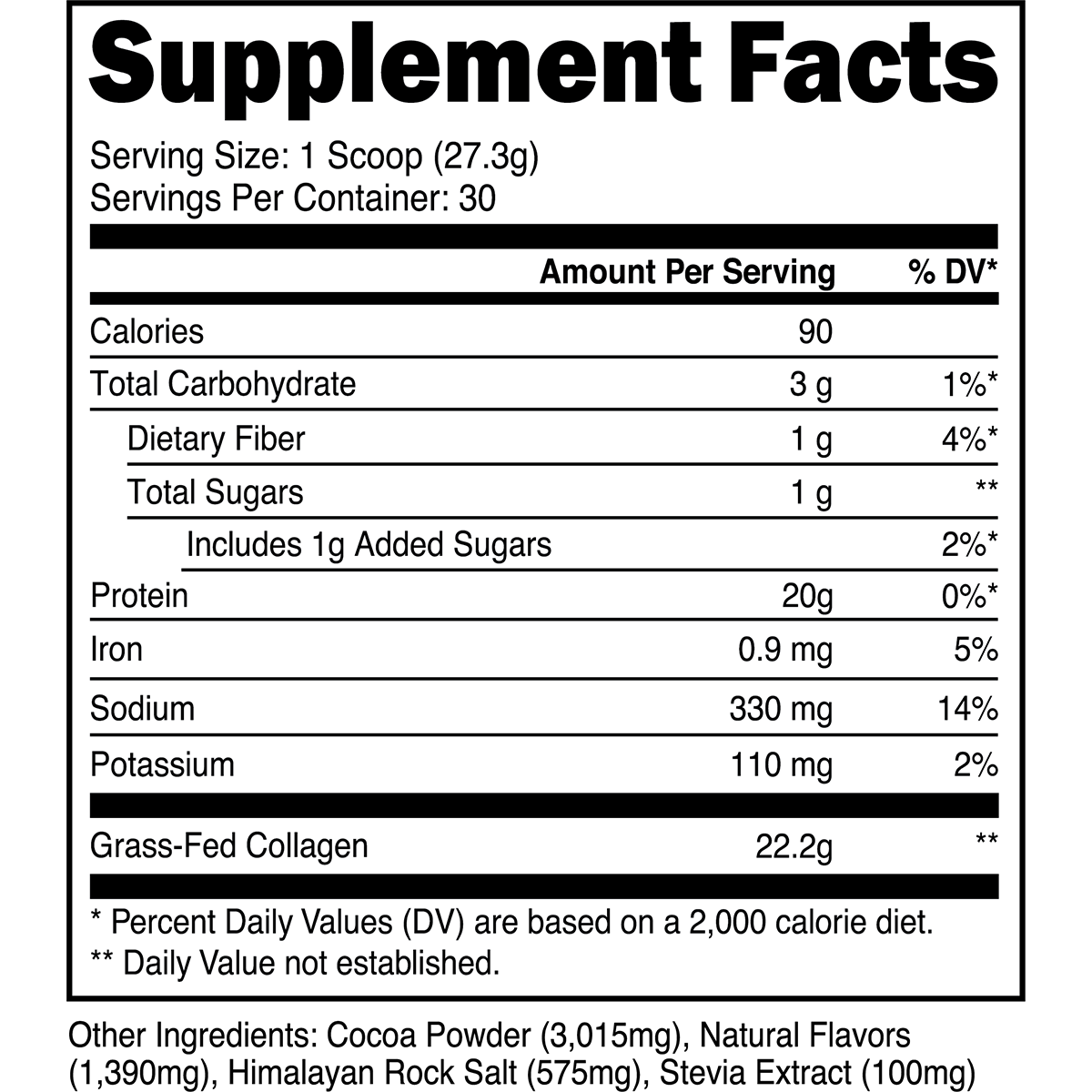
Orders in the US over $99 ship free.
Once your order has shipped out from our fulfillment center, you will receive a Shipping Confirmation email. If you selected a tracked shipping method, you will receive your tracking information, along with the necessary steps to track your order, within this email. Please note, orders are generally fulfilled same day or next business day.
Click here for the full shipping and delivery guide »
45 Day Satisfaction Guarantee
If you are not satisfied with your product, we will offer you a full refund or store credit for the value of the item within 45 days of delivery.
Click here for the full refund policy »
why use Grass-Fed Collagen?
Our premium hydrolyzed collagen supplement is designed to support skin, joint, and connective tissue health.
Supports Skin Hydration & Elasticity
Collagen peptides help reduce wrinkles and improve skin texture.

Promotes Joint & Bone Health
Hydrolyzed collagen supports cartilage integrity and bone density.

Strengthens Hair & Nails
Essential amino acids nourish hair follicles and improve nail resilience.

Easily Mixes in Any Beverage
Dissolves smoothly in hot or cold liquids with no clumping.
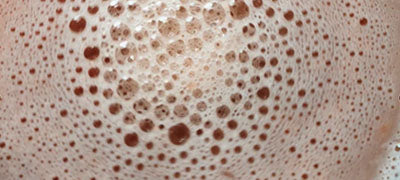
Key Ingredients
Hydrolyzed Bovine Collagen (Grass-Fed)
22 g
Grass-fed hydrolyzed bovine collagen peptides are rich in types I & III collagen for connective tissue support.
